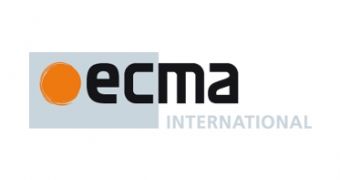Nine years after its previously launched version, ECMA International has announced the release of ECMAScript 5, which was approved as a web standard by the ECMA International's General Assembly at the start of December. This will bring many new features to ECMA-based languages like JScript (Microsoft) and JavaScript (Netscape).
The new version was approved in ECMA's International General Assembly held on December 3 at Google's headquarters. 21 out of the 22 members were present, 19 of them voting yes, with two voting no. IBM and Intel voted against adopting this version as a general standard because of various reasons (for IBM, the lack of decimal, while Intel didn't have enough time to study the intellectual property implications of the standard).
The General Assembly is formed of 22 voting members, mainly companies that have interest and experience in matters related to one or more of ECMA International's regulated domains of activity: Google, Microsoft, Hewlett Packard, Konica Minolta, Intel, IBM, Adobe, Yahoo, Xerox, Toshiba, Lexmark, Hitachi, Philips, Sony, Samsung, Pioneer, NVIDIA, AMD, Canon, Fujitsu, Avaya and Ericsson. Other non-voting members of ECMA include Mozilla, Opera, Apple, Novell and many more. The General Assembly also agreed that the standard be submitted to ISO for approval as a general international standard.
As we reported in August 2009, this release only contains some small additions to the language, mainly in its security department. The base core of the new JavaScript 2 scripting language is still to come in the near future. That fresh version of JS2 is called ECMAScript Harmony and is still under heavy developing.
ECMAScript 5 comes with some new improvements like support for the JSON object encoding format, accessory properties, reflective creation and inspection of objects, program control of property attributes, additional array manipulation functions and a strict mode that provides enhanced error checking and program security.
Other features and the entire standard can be found at this official link provided by ECMA International.

 14 DAY TRIAL //
14 DAY TRIAL //